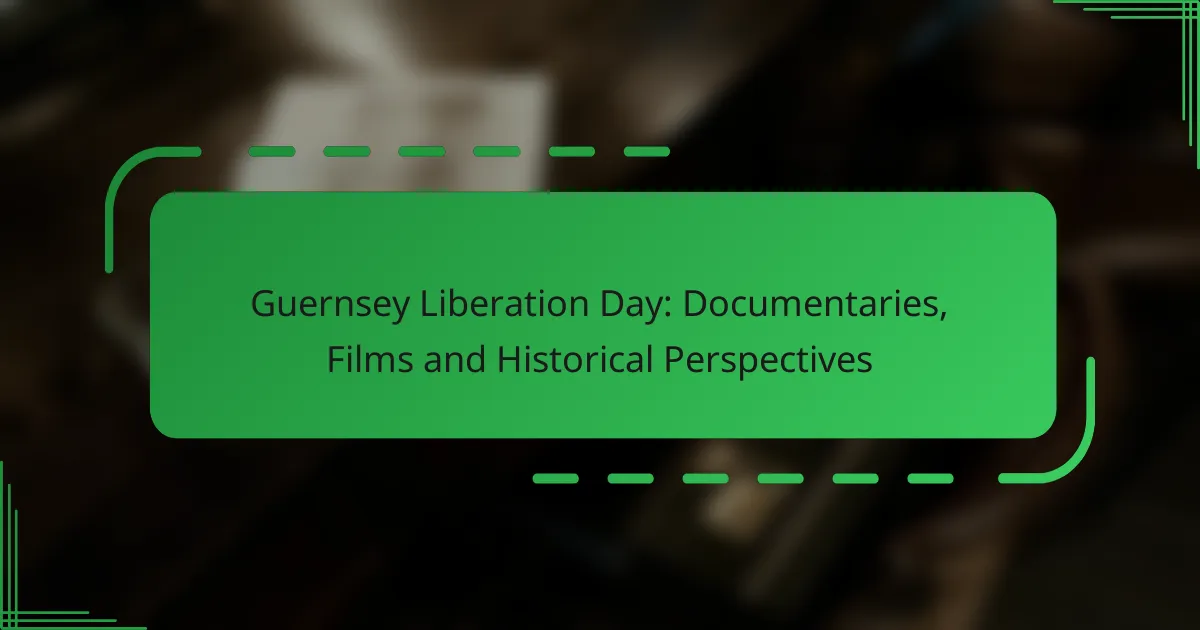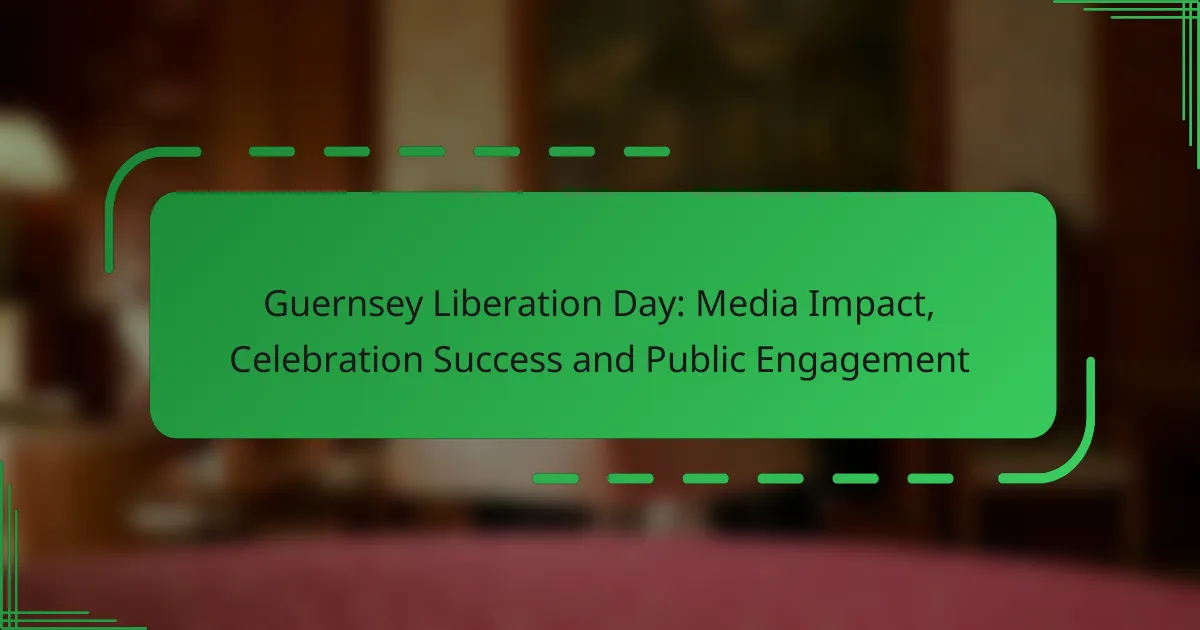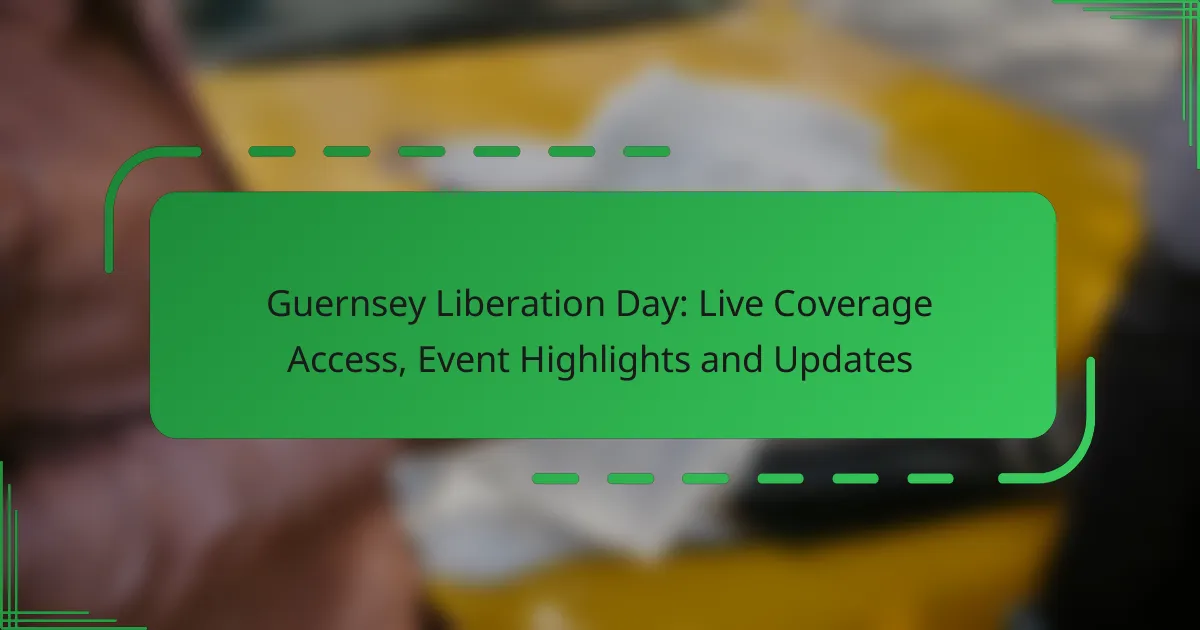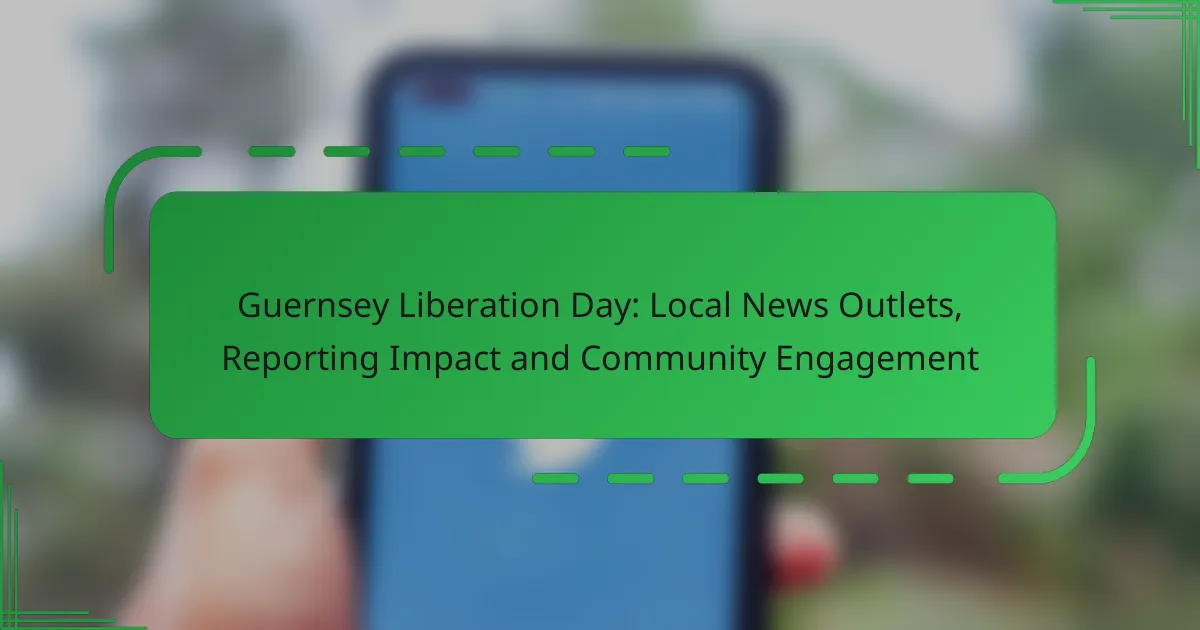Guernsey Liberation Day commemorates the island’s liberation from German occupation during World War II, blending solemn remembrance with festive celebrations. Documentaries and films exploring this pivotal moment provide valuable insights into the historical context and personal narratives of the residents, highlighting the profound impact of the occupation on the local community.
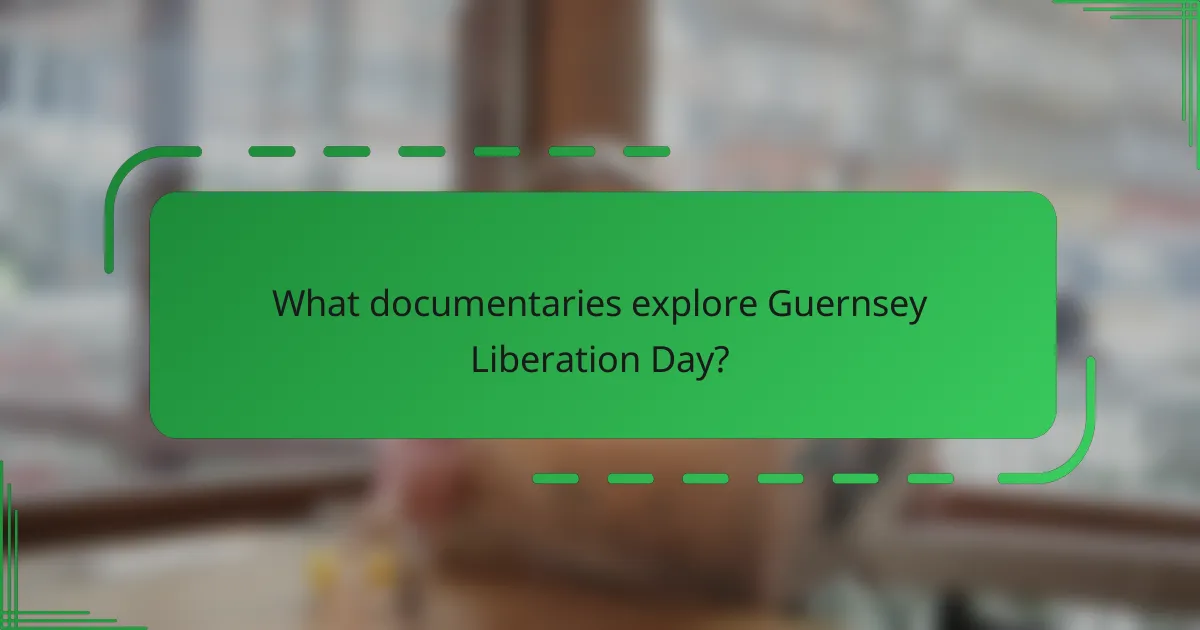
What documentaries explore Guernsey Liberation Day?
Several documentaries delve into Guernsey Liberation Day, offering insights into the island’s history during World War II and its eventual liberation. These films highlight personal stories, historical events, and the impact of the occupation on the local community.
Guernsey Liberation: The Untold Story
This documentary presents a detailed account of the events leading up to and following Guernsey’s liberation in May 1945. It features interviews with locals who experienced the occupation, providing a personal touch to the historical narrative.
The film emphasizes lesser-known aspects of the occupation, such as the daily struggles faced by residents and the resilience they showed throughout the war. By focusing on personal stories, it enriches the understanding of the island’s history.
Island at War
“Island at War” is a dramatized series that explores the lives of Guernsey residents during the German occupation. While it is a fictional portrayal, it draws heavily on historical events and testimonies to depict the societal impact of war.
The series illustrates the tension and moral dilemmas faced by the islanders, making it a compelling watch for those interested in the human side of wartime experiences. It serves as a reminder of the complexities of life under occupation.
Guernsey: The Liberation
This documentary focuses specifically on the liberation of Guernsey, featuring archival footage and expert commentary. It captures the emotions and celebrations that marked the end of the occupation, providing a vivid portrayal of the island’s return to freedom.
By showcasing the reactions of the local population, the film highlights the significance of Liberation Day in Guernsey’s collective memory. It serves as an important educational resource for understanding the historical context of the event.
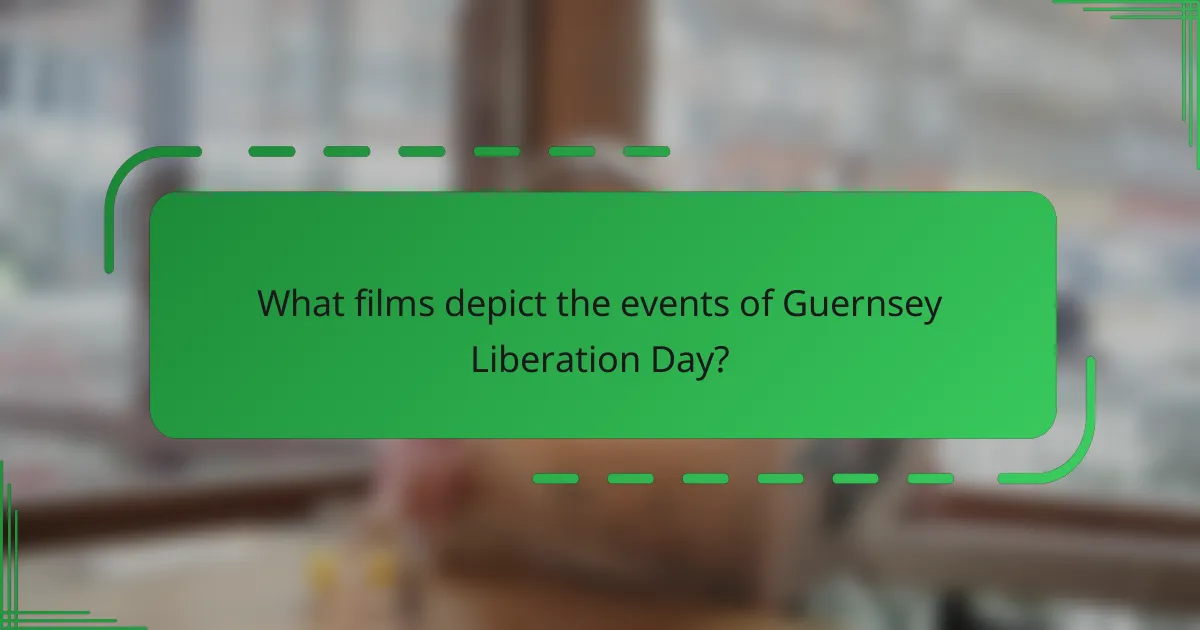
What films depict the events of Guernsey Liberation Day?
Several films portray the events surrounding Guernsey Liberation Day, highlighting the island’s experiences during World War II and the subsequent liberation. These films provide valuable insights into the historical context and personal stories of the residents during this significant period.
When the Sky Falls
“When the Sky Falls” is a poignant film that delves into the impact of the German occupation on Guernsey’s inhabitants. It captures the emotional struggles faced by families and the resilience of the community during the war years.
The film combines personal narratives with historical events, offering viewers a deeper understanding of the challenges and sacrifices made by the people of Guernsey. It serves as a reminder of the importance of remembrance and the human spirit’s ability to endure hardship.
The Guernsey Literary and Potato Peel Pie Society
“The Guernsey Literary and Potato Peel Pie Society” is a film based on the novel of the same name, set in the aftermath of the German occupation. It tells the story of a writer who forms a bond with the island’s residents through their shared love of literature, highlighting the power of storytelling during difficult times.
This film not only showcases the cultural aspects of Guernsey but also reflects on the social dynamics and relationships forged during the occupation. It emphasizes how creativity and connection can thrive even in the darkest of circumstances, making it a significant representation of Guernsey’s liberation narrative.
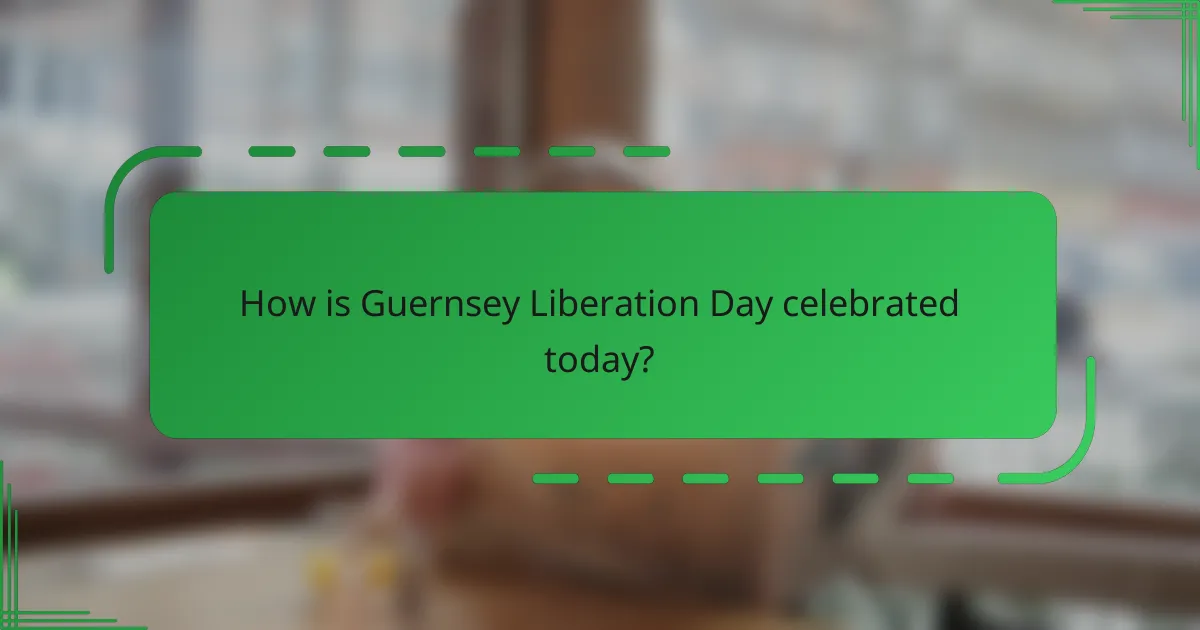
How is Guernsey Liberation Day celebrated today?
Guernsey Liberation Day is celebrated with a mix of solemn remembrance and festive activities, marking the island’s liberation from German occupation during World War II. The day features various events that engage the community and honor the sacrifices made during the occupation.
Annual parades and ceremonies
Annual parades are a central feature of Guernsey Liberation Day, showcasing local groups, veterans, and schoolchildren. These parades typically include marching bands, floats, and representatives from various organizations, all celebrating the island’s freedom.
Ceremonies are held at significant memorials and sites, where speeches are delivered to honor those who fought for liberation. Wreath-laying ceremonies often take place, allowing residents to pay their respects and reflect on the historical significance of the day.
Community events and activities
Community events on Guernsey Liberation Day include fairs, concerts, and exhibitions that highlight local culture and history. These activities foster a sense of unity and pride among residents, encouraging participation from all age groups.
Local businesses often contribute by hosting special promotions or themed events, enhancing the festive atmosphere. Families can enjoy activities such as face painting, games, and food stalls, making it a day for both remembrance and celebration.
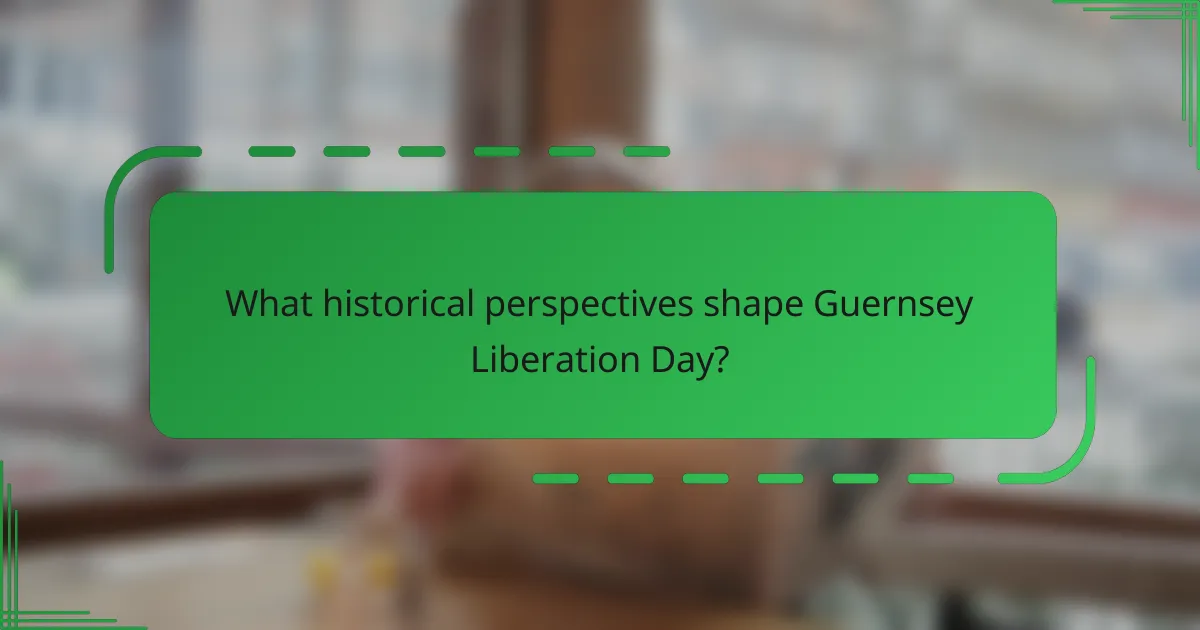
What historical perspectives shape Guernsey Liberation Day?
Guernsey Liberation Day is shaped by the island’s experiences during World War II, particularly the German occupation from 1940 to 1945. This day commemorates the liberation of Guernsey and reflects on the resilience of its people and the impact of wartime events on local identity.
Impact of World War II on Guernsey
The German occupation of Guernsey had profound effects on the island’s society and economy. Residents faced strict regulations, food shortages, and forced labor, which altered daily life significantly. The occupation also led to the construction of military fortifications, many of which remain as historical sites today.
After the liberation in May 1945, the island began to rebuild and recover from the devastation. The scars of war influenced local culture and memory, fostering a strong sense of community and a commitment to remembrance that is evident in annual celebrations and memorials.
Role of the local resistance
Local resistance movements played a crucial role during the occupation, with individuals engaging in acts of defiance against German authorities. These included sabotage, the dissemination of information, and aiding escaped prisoners of war. Such efforts, though often risky, helped maintain a spirit of opposition among the islanders.
The legacy of the resistance is celebrated in Guernsey, highlighting the bravery of those who stood against oppression. Commemorative events often feature stories of local heroes, ensuring that the contributions of these individuals are remembered as part of the island’s history and identity.
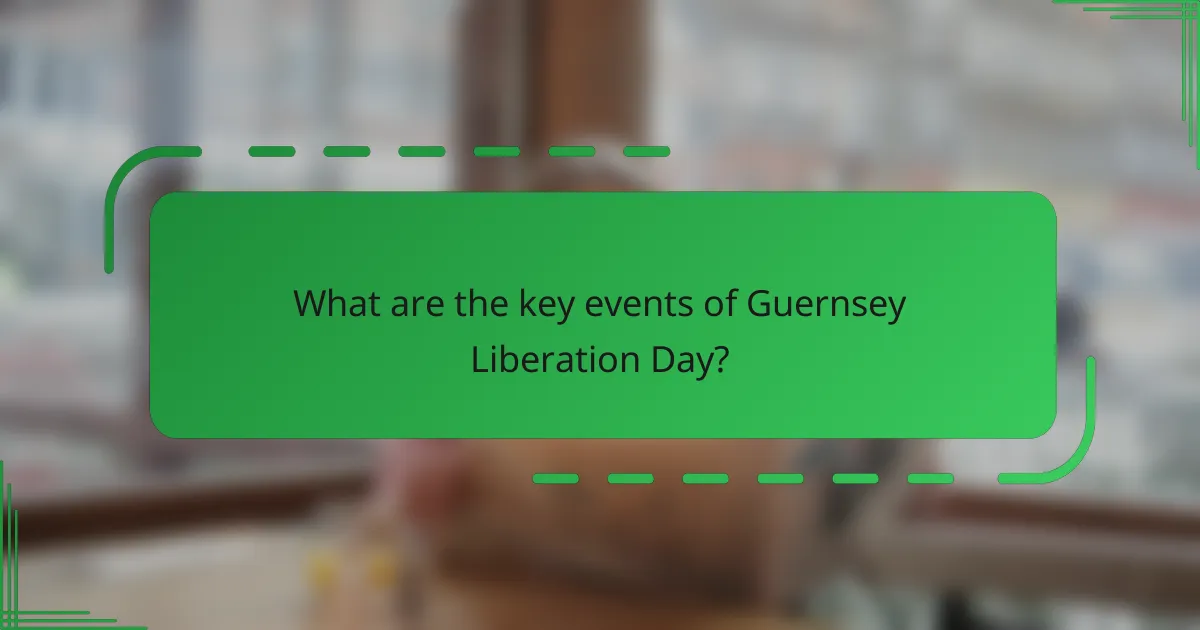
What are the key events of Guernsey Liberation Day?
Guernsey Liberation Day commemorates the end of German occupation during World War II, marking a significant moment in the island’s history. Celebrated annually on May 9, it honors the resilience of the local population and the liberation efforts of Allied forces.
German occupation timeline
The German occupation of Guernsey began in June 1940 and lasted until May 1945. During this period, the island faced strict military control, which included curfews, censorship, and the requisition of resources. The occupation significantly impacted daily life, with many residents enduring hardships and restrictions.
Key events during the occupation included the construction of fortifications and bunkers, as well as the imposition of German laws. Resistance movements emerged, although they operated under considerable risk due to the oppressive regime.
Official liberation date and significance
The official liberation date for Guernsey is May 9, 1945, when British forces arrived to reclaim the island. This date is significant as it symbolizes the end of five years of occupation and the restoration of freedom to the Guernsey people. Celebrations typically include parades, memorial services, and community gatherings.
Liberation Day serves not only as a reminder of the past but also as a celebration of Guernsey’s identity and resilience. The day is marked by various events that reflect the island’s culture and history, fostering a sense of unity among residents and honoring those who suffered during the occupation.
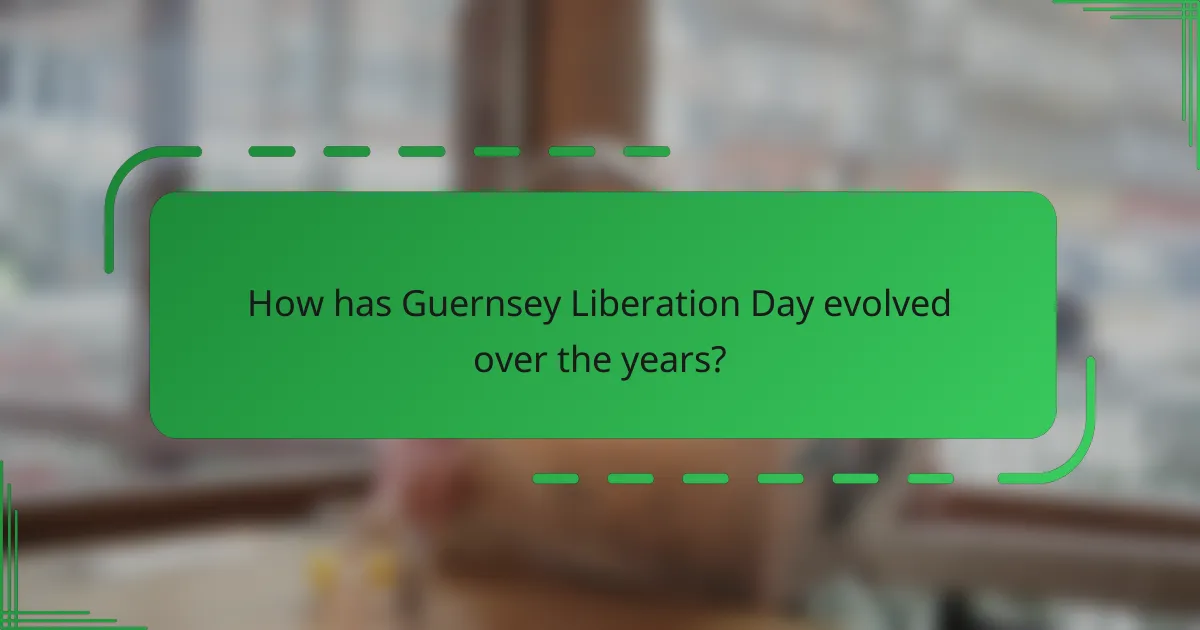
How has Guernsey Liberation Day evolved over the years?
Guernsey Liberation Day has transformed significantly since its inception in 1945, reflecting changes in societal values and historical awareness. Initially a day of celebration, it has grown to encompass a deeper understanding of the island’s history and the impact of the German occupation during World War II.
Changes in public perception
Over the decades, public perception of Guernsey Liberation Day has shifted from a purely festive occasion to a more reflective commemoration of resilience and freedom. Many residents now view the day as an opportunity to honor those who suffered during the occupation, fostering a sense of collective memory.
In recent years, educational initiatives have increased awareness of the historical context, leading to a more nuanced appreciation of the day. This evolution has encouraged younger generations to engage with their heritage and understand the significance of liberation.
Modern commemorative practices
Modern commemorative practices for Guernsey Liberation Day include a mix of traditional and contemporary events, such as parades, memorial services, and community gatherings. These activities often feature speeches from local leaders and veterans, emphasizing the importance of remembrance.
Additionally, the use of digital platforms has allowed for broader participation, with online events and social media campaigns encouraging people to share their stories and experiences. This blend of old and new practices helps to keep the spirit of Liberation Day alive while adapting to changing societal norms.
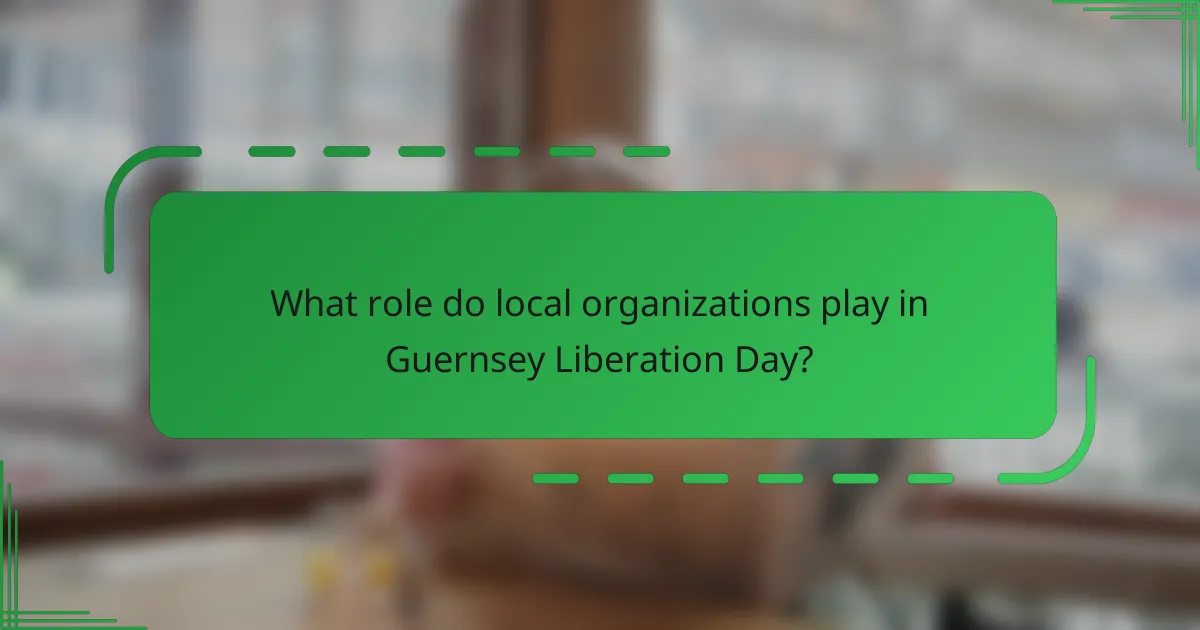
What role do local organizations play in Guernsey Liberation Day?
Local organizations are essential in commemorating Guernsey Liberation Day, as they help preserve the island’s history and promote community engagement. These groups organize events, educational programs, and exhibitions that highlight the significance of the day and its historical context.
Guernsey Museum and Art Gallery
The Guernsey Museum and Art Gallery plays a pivotal role in celebrating Liberation Day by showcasing exhibitions that reflect the island’s wartime history and liberation. Visitors can explore artifacts, photographs, and personal stories that illustrate the impact of World War II on Guernsey.
During Liberation Day, the museum often hosts special events, including guided tours and talks, which provide deeper insights into the island’s past. These activities encourage locals and tourists alike to engage with Guernsey’s heritage and understand the significance of freedom.
Local historical societies
Local historical societies are vital in researching and documenting Guernsey’s history, particularly related to Liberation Day. These organizations often collaborate with the museum to provide accurate historical narratives and organize community events that foster awareness and appreciation of the island’s past.
Many societies offer lectures, workshops, and publications that delve into specific aspects of Guernsey’s liberation. By participating in these activities, residents can gain a richer understanding of their heritage and contribute to ongoing discussions about its relevance today.
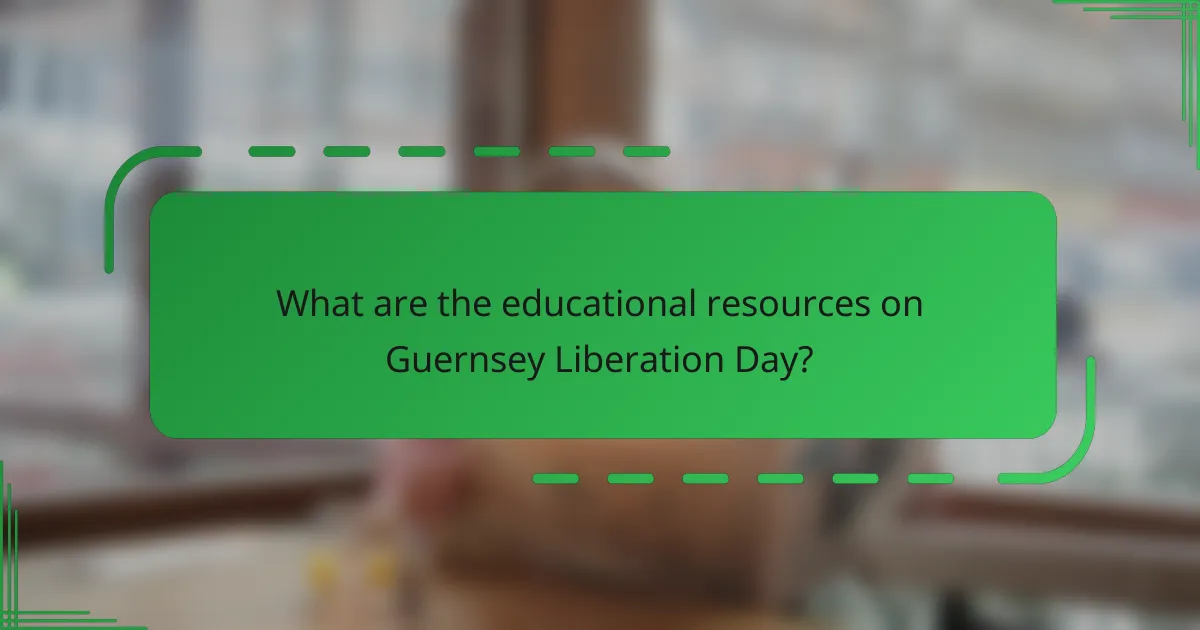
What are the educational resources on Guernsey Liberation Day?
Educational resources on Guernsey Liberation Day include documentaries, films, and historical accounts that provide insights into the significance of this day. These materials help to commemorate the liberation of Guernsey from German occupation during World War II and foster a deeper understanding of its historical context.
Documentaries on Guernsey Liberation Day
Documentaries about Guernsey Liberation Day often feature interviews with locals, archival footage, and expert commentary. These films provide a comprehensive overview of the events leading up to the liberation and the impact on the island’s residents. Notable documentaries may include personal stories that highlight the resilience of the Guernsey people during the occupation.
Many documentaries are available through local libraries or online platforms, making them accessible for educational purposes. They can be used in classrooms or community events to engage audiences with the history of Guernsey.
Films Depicting the Liberation
Films that depict the liberation of Guernsey often dramatize the events surrounding the end of German occupation. These films can range from historical dramas to documentaries that blend narrative storytelling with factual accounts. They serve to illustrate the emotional and social ramifications of the liberation on the island’s inhabitants.
Some films may be available for public screenings or can be purchased through local retailers or online. Engaging with these films can enhance understanding and appreciation of the significance of Liberation Day.
Historical Perspectives and Accounts
Historical perspectives on Guernsey Liberation Day include written accounts, books, and articles that detail the experiences of those who lived through the occupation. These resources often provide context about the political and military strategies involved in the liberation. They can be invaluable for researchers and students alike.
Local historical societies and museums may offer access to archives and firsthand accounts that enrich the narrative of Liberation Day. Engaging with these resources can provide a more nuanced view of the events and their lasting impact on Guernsey’s culture and identity.
